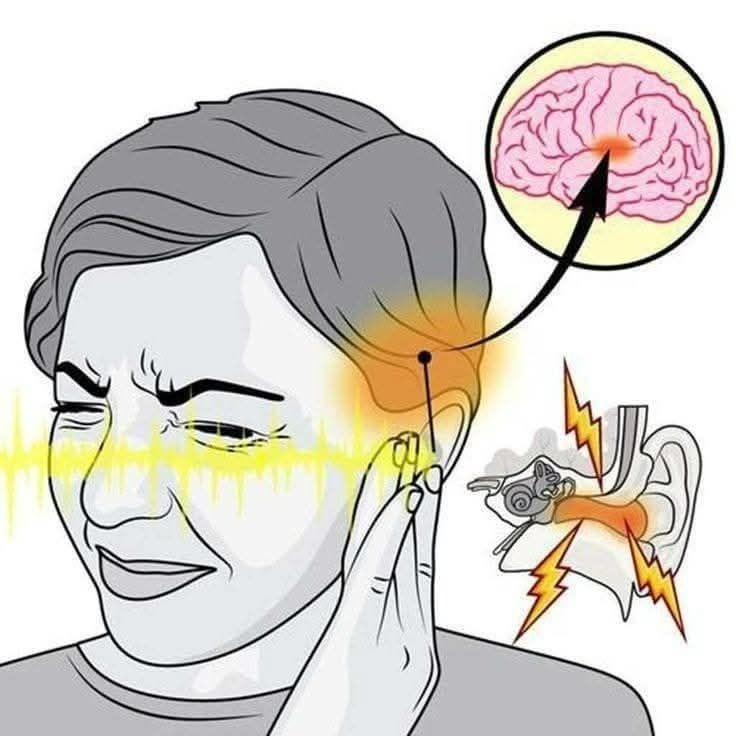ADVERTISEMENT
Hearing a ringing, buzzing, or hissing sound in your ears when no external noise is present can be unsettling. This phenomenon, known as tinnitus, is a common condition that affects millions of people worldwide. While tinnitus itself is not a disease, it is often a symptom of an underlying issue. In this article, we’ll explore what tinnitus could indicate, its potential causes, and when to seek medical attention.
What Is Tinnitus?
Tinnitus is the perception of sound in one or both ears when no external sound is present. It can manifest as:
Ringing
Buzzing
Hissing
Clicking
Roaring
The sound may be constant or intermittent, and its intensity can vary from mild to severe. Tinnitus is not a condition itself but rather a symptom of an underlying issue.
Possible Causes of Tinnitus
If you’re experiencing tinnitus, it could be a sign of one of the following conditions or factors:
1. Hearing Loss
Age-Related Hearing Loss: As we age, the delicate structures in the inner ear can deteriorate, leading to hearing loss and tinnitus.
Noise-Induced Hearing Loss: Prolonged exposure to loud noises (e.g., concerts, machinery, or headphones) can damage the hair cells in the inner ear, causing tinnitus.
2. Ear Infections or Blockages
Earwax Buildup: Excess earwax can block the ear canal and cause tinnitus.
Ear Infections: Infections or inflammation in the ear can lead to temporary tinnitus.
3. Meniere’s Disease
This inner ear disorder, characterized by vertigo, hearing loss, and tinnitus, is caused by fluid buildup in the inner ear.
4. TMJ Disorders
Problems with the temporomandibular joint (TMJ), which connects the jaw to the skull, can cause tinnitus.
5. Cardiovascular Issues
Conditions like high blood pressure, atherosclerosis, or turbulent blood flow can cause pulsatile tinnitus, where the ringing sound syncs with your heartbeat.
6. Medications
Certain medications, such as antibiotics, diuretics, and high doses of aspirin, can cause or worsen tinnitus as a side effect.
7. Stress and Anxiety
High stress levels can exacerbate tinnitus or make it more noticeable.
8. Other Medical Conditions
Conditions like anemia, thyroid disorders, or acoustic neuroma (a benign tumor on the auditory nerve) can also cause tinnitus.
When to See a Doctor
While tinnitus is often not a sign of a serious condition, you should consult a healthcare professional if:
The ringing is persistent or worsening.
You experience sudden hearing loss.
The tinnitus is accompanied by dizziness, vertigo, or pain.
The sound is pulsatile (in sync with your heartbeat).
A doctor can perform tests to determine the underlying cause and recommend appropriate treatment.
Natural Remedies and Management Tips
ADVERTISEMENT
